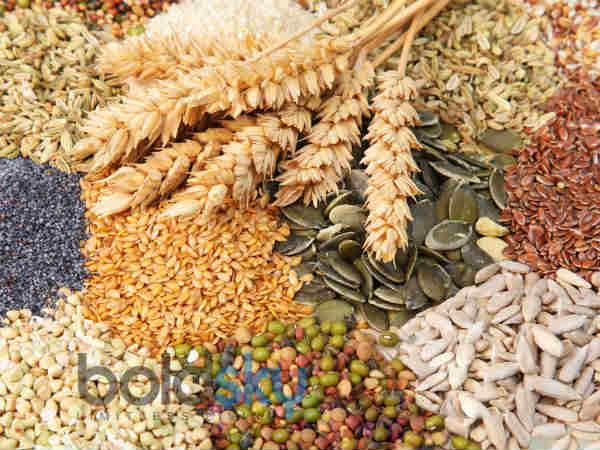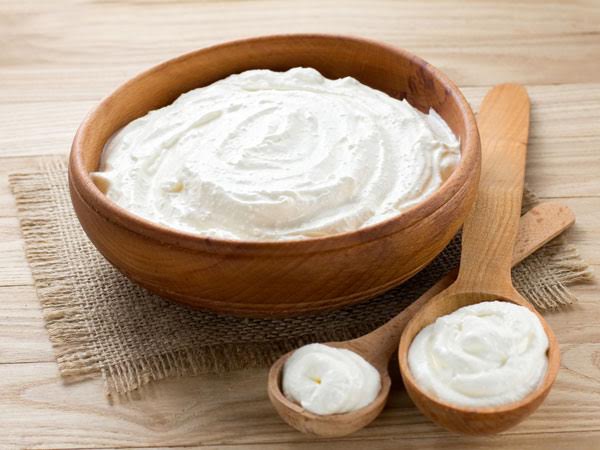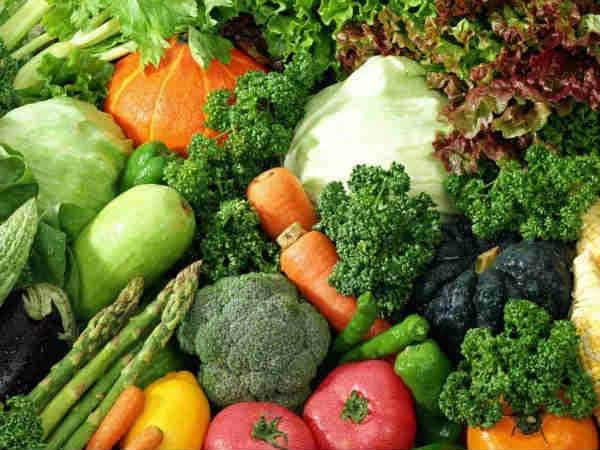Just In
- 2 hrs ago

- 5 hrs ago

- 9 hrs ago

- 10 hrs ago

Don't Miss
- Movies
 Tillu Square OTT Release Date Fixed: When & Where To Watch Siddhu Jonnalagadda's Super Hit Latest Crime-Comedy
Tillu Square OTT Release Date Fixed: When & Where To Watch Siddhu Jonnalagadda's Super Hit Latest Crime-Comedy - News
 Lok Sabha Election 2024: Polling Underway For Two LS Seats And 50 Assemblies In Arunachal Pradesh
Lok Sabha Election 2024: Polling Underway For Two LS Seats And 50 Assemblies In Arunachal Pradesh - Finance
 Black Friday For Market? Sensex & Nifty Decline For The 5th Straight Day Amidst Rising Geopolitical Tensions
Black Friday For Market? Sensex & Nifty Decline For The 5th Straight Day Amidst Rising Geopolitical Tensions - Technology
 TSMC's Global Expansion Could Drive Up Chip Costs, Making Tech More Expensive
TSMC's Global Expansion Could Drive Up Chip Costs, Making Tech More Expensive - Automobiles
 Suzuki Motorcycle India Achieves Production of Over 8 Million Two-Wheelers
Suzuki Motorcycle India Achieves Production of Over 8 Million Two-Wheelers - Sports
 IPL 2024: 'It was his idea only' - Rinku Singh reveals Gautam Gambhir's masterstroke with Sunil Narine move
IPL 2024: 'It was his idea only' - Rinku Singh reveals Gautam Gambhir's masterstroke with Sunil Narine move - Education
 Karnataka SSLC Result 2024 Soon, Know How to Check Through Website, SMS and Digilocker
Karnataka SSLC Result 2024 Soon, Know How to Check Through Website, SMS and Digilocker - Travel
Telangana's Waterfall: A Serene Escape Into Nature's Marvels
World Epilepsy Day: Can A Good Diet Help Those Who Have Epilepsy?
World Epilepsy Day: Can a proper diet help epileptic people? This article discusses foods that can help those who are affected by the disease.
Epilepsy is a serious neurological condition, which sees a tendency of having seizures in the brain. It is usually diagnosed after a person has had more than one seizure.
Can food help in dealing with epileptic seizures?
A proper diet including various foods can help boost the body and brain to function; and in the process, reduce the risk of seizures for people with epilepsy.
There is no particular food which triggers epilepsy, since the ailment varies from an individual to individual. But, preservatives and artificial sweeteners are generally advised to be avoided.

How a diet can help those suffering from epilepsy?
Although there is little evidence that a balanced diet affects the epileptic condition directly, but it certainly provides the essential nutrients and keeps our energy level steady. A balanced diet helps you to maintain a regular sleeping pattern and live an active life - something which is very essential for a good overall health.
A proper diet can help people with poorly controlled seizures by using particular levels of fat, carbohydrate and protein to affect the brain's functioning.
What is an ideal balanced diet?
A balanced diet is made up of carbohydrates, proteins, fats, vegetables and fruits and drinking plenty of water. Dietary habits are determined by where we live and our lifestyle.
In a balanced diet, carbohydrates provide us positive energy and can be found in foods like rice, potatoes, bread, etc. Whole grain forms of these foods give vitamins, minerals and fibres.

Proteins build and support the 'pillars' of our body like muscles, hormones, enzymes, etc. They are found in dairy foods and items like fish, beans, lentils, eggs, etc.
Fats help in absorbing the nutrients like important vitamins and they help our body to remain warm. They keep our cells healthy and give us energy.
Vegetables and fruits supply vitamins and minerals and protect us from infection and diseases. But one should be careful about taking vitamin supplements by oneself. Consulting a doctor is important in this regard.
Consuming enough water keeps our body hydrated and reduces the risk of seizures.
High Energy Level Required For Epileptic Patients:
Eating foods that release energy levels slowly helps you feel fuller and provides more fibre than those which give an instant energy. Such food items include whole grain breads, brown rice, pasta, oats and oat-based cereals, beans and pulses, yogurt, sweet potatoes, non-starchy vegetables, etc.

On the other hand, white bread and flour, non-whole grain cereals, cakes, sugary food and drinks, fruit juices, chips, etc., give an instant energy followed by a slump.
Among fats, omega-3 varieties are good for our heart and skin, and boost the energy levels. Fish, flax seeds, hemp seeds and walnuts are healthy.

On the other hand, trans fats or hydrogenated fats in processed items and deeply fried foods should be avoided. These fats are difficult for our body to break down and lead to the rise in bad cholesterol levels and eventually to heart diseases.
Preparing
Your
Own
Food:
Epileptic
people
can
prepare
their
own
food,
so
that
they
can
have
a
control
on
what
they
eat.
But
it
is
always
important
to
remember
that
you
may
have
a
seizure
during
cooking.
You can use wire baskets inside saucepans, so that danger can be avoided in case you have a seizure. You can also use a microwave instead of an oven for cooking.
-
 healthExclusive: On International Epilepsy Day 2024, Let's Dispel Myths And Misconceptions About Epilepsy
healthExclusive: On International Epilepsy Day 2024, Let's Dispel Myths And Misconceptions About Epilepsy -
 disorders cureFatima Sana Shaikh Opens Up About Her Epilepsy Diagnosis During National Epilepsy Awareness Month
disorders cureFatima Sana Shaikh Opens Up About Her Epilepsy Diagnosis During National Epilepsy Awareness Month -
 wellnessScientists Develop AI Algorithms That Can Detect Brain Abnormalities, New Hope For Epilepsy Treatment
wellnessScientists Develop AI Algorithms That Can Detect Brain Abnormalities, New Hope For Epilepsy Treatment -
 kidsNational Epilepsy Day 2021: Epilepsy In Children: Causes, Symptoms And Does Treatment Help Ease The Condition?
kidsNational Epilepsy Day 2021: Epilepsy In Children: Causes, Symptoms And Does Treatment Help Ease The Condition? -
 disorders cureNational Epilepsy Day 2021: What Is Status Epilepticus? Causes, Symptoms, Diagnosis And Treatments
disorders cureNational Epilepsy Day 2021: What Is Status Epilepticus? Causes, Symptoms, Diagnosis And Treatments -
 healthLevel Four Epilepsy Care Centre Launched At Prominent Chennai Hospital
healthLevel Four Epilepsy Care Centre Launched At Prominent Chennai Hospital -
 wellnessInternational Epilepsy Day: Expert Speaks About Ketogenic Diet For Epilepsy
wellnessInternational Epilepsy Day: Expert Speaks About Ketogenic Diet For Epilepsy -
 wellnessInternational Epilepsy Day: Nutrition Tips For People Living With Epilepsy
wellnessInternational Epilepsy Day: Nutrition Tips For People Living With Epilepsy -
 wellness10 Tips On How To Live Well With Epilepsy
wellness10 Tips On How To Live Well With Epilepsy -
 disorders cureInternational Epilepsy Day: Epilepsy Causes, Symptoms, Triggers, Risk factors & Treatment
disorders cureInternational Epilepsy Day: Epilepsy Causes, Symptoms, Triggers, Risk factors & Treatment -
 disorders cureInternational Epilepsy Day 2020: Refractory Epilepsy And Role Of Keto Diet In Treating Epilepsy
disorders cureInternational Epilepsy Day 2020: Refractory Epilepsy And Role Of Keto Diet In Treating Epilepsy -
 disorders curePharmacogenetics In Treating Epilepsy
disorders curePharmacogenetics In Treating Epilepsy


 Click it and Unblock the Notifications
Click it and Unblock the Notifications



